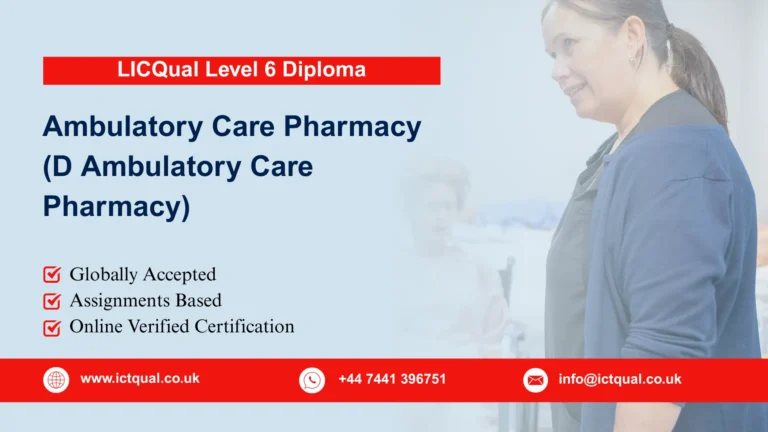In today’s rapidly evolving world of aesthetic medicine, professionals are constantly seeking ways to enhance their skills and credentials. One of the most respected qualifications in this field is the ICTQual Level 7 Diploma in Aesthetic Practice. This advanced qualification offers medical professionals the opportunity to master a range of aesthetic procedures, ensuring they stay at the forefront of industry developments while providing patients with the highest standard of care.
The ICTQual Level 7 Diploma in Aesthetic Practice is an accredited qualification designed for individuals looking to further their expertise in non-surgical aesthetic treatments. This comprehensive course is ideal for professionals such as doctors, nurses, dentists, and other healthcare practitioners who are already working in the aesthetics industry. It covers a wide variety of treatments, including botulinum toxin injections, dermal fillers, chemical peels, and laser treatments.
One of the key reasons to pursue the ICTQual Level 7 Diploma is its emphasis on clinical excellence. The qualification combines theoretical knowledge with practical training, allowing professionals to gain hands-on experience in performing aesthetic treatments. By completing this diploma, practitioners can enhance their technical skills and increase their confidence in delivering safe and effective procedures.
The ICTQual Level 7 Diploma in Aesthetic Practice is an invaluable qualification for healthcare professionals looking to expand their skill set in the growing field of aesthetic medicine. Offering advanced knowledge, practical training, and career-enhancing benefits, it is the perfect course for anyone wishing to stay ahead in the competitive aesthetic industry. Whether you are looking to offer the latest aesthetic treatments or simply enhance your professional standing, the ICTQual Level 7 Diploma will provide you with the tools you need to succeed.
The ICTQual Level 7 Diploma in Aesthetic Practice is an advanced, accredited qualification designed for healthcare professionals seeking to expand their expertise in non-surgical aesthetic treatments. Tailored for experienced practitioners such as doctors, nurses, and dentists, this diploma provides in-depth training in a range of aesthetic procedures, including botulinum toxin injections, dermal fillers, chemical peels, and laser treatments.
The course offers a blend of theoretical knowledge and practical experience, ensuring that graduates are well-prepared to perform advanced aesthetic treatments safely and effectively. Key topics include advanced consultation skills, injection techniques, laser therapies, complication management, and human anatomy. The programme is structured to be flexible, allowing professionals to complete the course while balancing their current career commitments.
Upon successful completion, individuals will be equipped with the skills and knowledge to deliver high-quality aesthetic procedures, manage patient care with confidence, and expand their professional practice. The qualification is recognised both in the UK and internationally, offering practitioners the opportunity to advance their careers and meet the growing demand for aesthetic treatments.
The ICTQual Level 7 Diploma in Aesthetic Practice, to achieve the qualification candidates must must complete the all six mandatory units of Total Qualification Time (TQT): 660 Hours, Guided Learning Hours (GLH): 380 Hours and 66 credits.:
The ICTQual Level 7 Diploma in Aesthetic Practice is designed for experienced healthcare professionals who are looking to specialise in non-surgical aesthetic treatments. The course is suitable for individuals who already have a background in healthcare and wish to expand their skills in aesthetic medicine. Specifically, the following professionals are ideal candidates for this course:
- Doctors (GPs, Dermatologists, etc.)
Medical doctors who want to advance their expertise in aesthetic procedures and provide cutting-edge treatments such as botulinum toxin injections and dermal fillers. - Nurses
Registered nurses, particularly those with experience in clinical settings, who are looking to transition into or specialise in aesthetic medicine, offering non-surgical treatments to patients. - Dentists
Dentists who are interested in adding facial aesthetic treatments to their practice, especially injectable therapies and facial rejuvenation procedures. - Other Healthcare Professionals
Other experienced healthcare practitioners, such as paramedics or pharmacists, who meet the entry requirements and wish to expand into the field of aesthetics. - Aesthetic Practitioners
Individuals already working in the aesthetics industry (e.g., beauty therapists) who want to enhance their knowledge and qualifications to offer advanced treatments and services.
This course is ideal for those seeking to elevate their practice, gain recognised qualifications, and stay ahead in the rapidly growing field of aesthetic medicine. It provides a strong foundation in both the clinical and ethical aspects of aesthetic procedures, ensuring professionals deliver safe and effective treatments while adhering to industry standards.
Upon completing the ICTQual Level 7 Diploma in Aesthetic Practice, students will be able to:
1. Consultation for Personalized Facial Aesthetic Treatments
- Develop advanced skills in conducting thorough consultations with patients, ensuring personalised treatment plans based on individual needs and goals.
- Understand how to assess a patient’s medical history, skin type, and aesthetic concerns to create a tailored approach to treatment.
- Gain proficiency in managing patient expectations, discussing potential outcomes, and obtaining informed consent.
- Strengthen communication skills to foster trust and rapport with clients, enhancing patient satisfaction and compliance.
2. Psychological Considerations in Facial Aesthetics
- Understand the psychological aspects that influence patient decision-making in aesthetic treatments.
- Recognise the impact of body image, self-esteem, and mental health in aesthetic procedures.
- Identify potential psychological risks, such as unrealistic expectations, and learn how to address them during consultations.
- Learn how to provide appropriate support and referrals when necessary to ensure patient well-being.
3. Principles of Ethics, Values, and Professionalism in Aesthetic Practice
- Gain a comprehensive understanding of the ethical principles and values that underpin professional aesthetic practice.
- Explore the legal and moral responsibilities of practitioners when performing aesthetic treatments.
- Learn how to maintain professionalism in all aspects of practice, ensuring ethical decision-making and patient care.
- Develop an understanding of industry standards, patient confidentiality, and the importance of maintaining professional boundaries.
4. Advanced Injectable Therapies: Botulinum Toxin for Facial Aesthetics
- Master the techniques required for the safe and effective administration of botulinum toxin in facial aesthetic treatments.
- Understand the anatomy of the face, including muscle movements and injection sites, to achieve optimal outcomes.
- Gain the knowledge to manage patient expectations and deliver natural-looking results.
- Learn how to handle potential complications and achieve safe, successful results in various facial areas.
5. Advanced Injectable Therapies: Temporary Dermal Fillers for Facial Rejuvenation
- Acquire the skills necessary to perform dermal filler injections for facial rejuvenation, focusing on achieving natural, aesthetically pleasing results.
- Understand the different types of dermal fillers, their indications, and the most appropriate use for each.
- Learn advanced techniques for facial volume restoration, wrinkle reduction, and contouring.
- Develop the ability to assess and manage potential complications associated with dermal fillers, ensuring patient safety.
6. Complications Management in Aesthetic Practice
- Gain expertise in identifying, preventing, and managing complications that may arise during or after aesthetic treatments.
- Learn how to handle adverse reactions and side effects, ensuring swift and appropriate intervention.
- Understand the importance of ongoing patient monitoring and follow-up care.
- Develop the skills to effectively communicate with patients regarding potential risks and the steps to take in case of complications.







